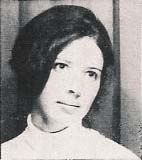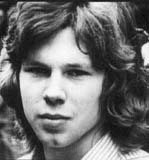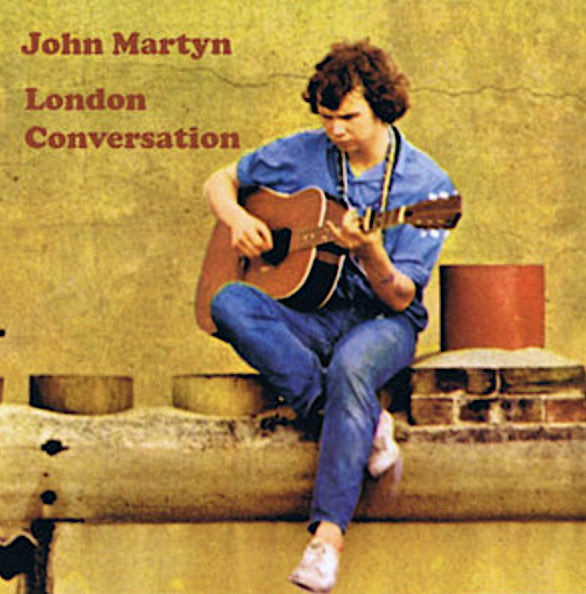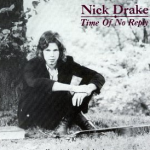By Robin Frederick
Reprinted from MOJO Magazine.
You know you’re becoming a legend when…
Recently I heard one of those “faked death” rumors. This one concerns Nick Drake. You know—he didn’t really die, his friends and family faked it because the pressures were too much for him, etc. One part of me is surprised to hear a rumor like this, a Rock-Star type rumor, swirling around my friend Nick, the shy, quiet boy-man I knew so many years ago. But another part of me—the part that has been a working songwriter and music producer for years, the part of me that recognizes Nick’s fearsome talent and the innovations he brought to guitar playing and song composition—that part of me is not surprised at all.
Unfortunately, I can’t believe the Nick Drake Faked Death Theory. I wish I could. While it seems there has always been a generous amount of myth-spinning around Nick’s life, it’s a life that doesn’t need any mythologizing. The simple truth of it is remarkable enough. At 18 years old, when I knew him, Nick Drake was just beginning to write songs. He played blues guitar with exceptional fluidity, but there was nothing to indicate that he had unusually great ability or talent.
Yet within two years, he had created a highly original guitar technique for which he is justifiably respected; he had honed the ability to write songs of lasting power and beauty, developed a unique artistic persona and vocal style. Oh, and one more thing—he had quietly invented a new way to staple melodies to chord progressions, the kind of innovation that opens vast new territory for songwriters, as Brian Wilson did when he showed us how to twist key changes like pretzels.
The south of France

In March, 1967, I was a 19-year-old American girl living in Aix-en-Provence, France. I was (and still am) a singer and songwriter. At that time I was performing folk songs and my own originals with a partner in a cabaret in Aix, nominally enrolled in university classes during the day. Nick Drake introduced himself one evening after I’d finished my set and asked if I’d like to get together to play some songs. Among the songs I played for him was one of my own called Been Smoking Too Long. I couldn’t have known then that I would one day hear his voice singing it back to me, long after he was dead.

Nick would appear at odd hours of the night at the door of my flat. I’d let him in and we’d pass the time playing songs for each other. He stared at the wall or the floor or into the fire. So did I. It is always nighttime, always twilight in the room with the gas fire in my memory.
Nick never sang any of his own songs for me. Perhaps he hadn’t written any yet, or if he had, he didn’t feel confident about playing them. He was singing songs by Bob Dylan, Bert Jansch, the songs we all covered. There was a Phil Ochs song I used to play that he liked called “Changes.” It’s a beautiful song with a haunting melody, I think I hear traces of it in Nick’s songs. It wouldn’t surprise me; I got the feeling he was absorbing everything around him – music, lyrics, ideas, emotions – quietly taking it all in.
We knew each other for only a short time. I’m still not sure who I met; but then, that’s what everyone says about him. Yet, for someone who was so elusive, he had an unmistakable presence that drew people to him. To put it bluntly, falling in love with Nick was a no-brainer and I promptly did; not that I ever let on, mind you.

He was extraordinarily attractive and that, plus his natural quietness, made it easy to weave a web of fantasies around him. This was the south of France, after all, and we were writers and singers roaming ancient streets where Cezanne painted and Rimbaud died. I was already quite good at imagining myself to be all kinds of people I wasn’t. So it was a simple matter to envelop Nick in the dark halo of Baudelaire. I don’t know how much he himself played this role. More than a little, as I recall.
Within a few weeks, he left for Morocco and I went to Greece. June came soon after and school was over. I headed off for parts north and never saw Nick again. But he was not out of my life, not out of my life at all.
Nick and John and Sandy Grey
I wonder about coincidences. I’ve never been able to determine if they are just the dumb accidents they seem to be or something we should be more suspicious of.

I spent the summer of 1967 in London with John Martyn, listening to Sgt. Pepper and the Incredible String Band, watching John learn to play sitar in about ten minutes, living on toast and tea while he recorded his first album, London Conversation. There’s a song of mine on that album called Sandy Grey which I wrote about Nick just before we went our separate ways. John and Nick hadn’t met yet, nor was there any reason to think they ever would. Who could know that John would later write the sorrowful and magnificent “Solid Air” about Nick.
“Oh, Sandy Grey, are you going away?” It sounds strange to me now, as if it wasn’t Nick I was writing about. I have to remind myself that in those days he was not the romantic icon he has since become. There were no beautiful albums. No exceptional songs. Just a good-looking young Brit on holiday in France about whom I knew little. Still, the words Sandy Grey—an indefinable, shifting shade—seemed to fit Nick to a T.
I bought Nick’s albums, one at a time, over the next few years. By the time I found the first one, he had probably already died but I didn’t know that. I played his music for songwriters, singers, producers—anyone I thought would hear the exceptional “something” I heard.
Even though I was a songwriter myself during all those years, it didn’t occur to me to look closely at Nick’s music or wonder how he achieved the ethereal quality, richness of texture, and simplicity that was always somehow unpredictable.Being a songwriter, it’s my business to learn how other writers do these things; but for some reason, I didn’t listen with those ears.
By then, guitarists had begun to notice his remarkable technique, and because it has been written about by musicians far better qualified than I am, I’m not going to even attempt to discuss it here. At that time, I knew nothing about the growing interest in Nick’s work. When I finally did begin to listen with more attention, I was caught completely off-guard. I simply did not expect to find what I found.
What Nick Drake did
There seems to be something about Nick Drake that keeps people from wanting to look too closely – at his life or at his music. Perhaps we fear the magic will evaporate, or we will suddenly see the strings that keep the angels in the air. But real art can withstand the most intense scrutiny. And, in fact, as we examine and peel away each layer, yet more wondrous layers appear.
That’s exactly what happened when I began to listen attentively to Nick’s albums. The truth is, I’d never really appreciated his music. I’d thought: How evocative, how beautiful, how romantic. But I’d certainly never thought “How amazingly innovative!” That is, not until I noticed what he was doing with chords and melodies. Then it struck me: Thinking what’s important about Nick Drake is his dark romanticism is like thinking what’s important about Brian Wilson is surfing. It’s missing the point in a way.
The way most songwriters do it
A little songwriting background: most Rock, Pop, and Folk music is based on just three or four basic chords, like C, A minor, F, and G. These chords are used to create chord progressions that turn up over and over in the hit songs of today and years past. (Sting’s “Every Breath You Take” is a great example.)
These chords are part of the recipe for writing Pop songs that appeal to a large audience. If you go too far away from the recipe you lose your listeners (and sound all experimental), if you don’t go far enough you end up with boring, familiar songs.
The way Nick Drake did it
The Holy Grail is to find a fresh way to do it. That’s what Brian Wilson did, and it’s the reason he is considered a genius by virtually all songwriters.
Nick Drake did it, too. He combined the guitar fingerpicking style, drones, and de-tuning of the British folk music scene with the use of “cluster chords.” These are chords that have more than the standard 3 notes of a major or minor chord and whose notes tend to be clustered very close together, creating a rich, complex sound. They’re used extensively in Jazz but not so much in Pop music and hardly at all in Folk.
Although cluster chords are easy to play on a piano keyboard, they’re a pain in the neck (literally) to play on guitar. Since most Rock and Pop songs were written on guitar in the ’50s and ’60s, you rarely heard them. Nick got around the problem of playing them by de-tuning his guitar—an idea he probably got from Bert Jansch (as did Jimmy Page), but his tunings were highly unusual, to say the least. And I do not know of a single guitar player in that time period (including Jansch) who was using cluster chords as extensively or fluidly as Nick was. Even when playing a simple major or minor chord on guitar, he was often singing the extension of the chord. It’s one of the things that gives his work its highly identifiable sound.
Why did he go to the trouble? Did he just like the dissonant yet warm sound that cluster chords are so famous for? That would account for part of it, but not all. There’s a sixth sense that good songwriters must have— the intuitive ability to match words with music so they work together, reinforcing each other to create a kind of emotional feedback loop. It’s called prosody and is largely responsible for the emotion a good song evokes in us. The world Nick describes in his songs is lonely and tormented, but at the same time comforting and almost seductively beautiful. Dissonance and warmth. Cluster chords. Prosody. He used them to create something we hadn’t heard before in Pop, Rock, or Folk music.
Been smokin’ too long…

I heard Nick’s home recording of my song “Been Smoking Too Long” in 1992 when I was given the Time Of No Reply album by the head of the label I record for. Putting the CD on, I can still remember a sense of falling—something like tumbling through Alice’s rabbit hole—pulled in by Nick’s voice singing a song I knew was somehow connected to me. I was trying to think of all those writers whose songs I used to sing, when Nick came to a line he had changed and suddenly I knew it was my song because those weren’t the words I had written. Then, for the longest while, I felt as if I were standing on a bridge suspended between the past and the present, like Einstein’s lost theory of emotional relativity.
Also on the Time Of No Reply album are the last vocals Nick recorded: “Black Eyed Dog,” “Hanging On A Star,” and “Rider On The Wheel.” The moment I heard Nick sing the first line of Black Eyed Dog I pressed the stop button. It wasn’t because of the music, but the cold, raw, dead feeling I got from listening to Nick’s voice. I don’t listen to it. I know there are people who like this track better than anything else he ever did, but I am not among them. He was my friend. I put Nick’s albums away.
It wasn’t until many years later that I finally learned what happened after we lost sight of each other. Wandering around the Internet late one night, I came across a website devoted to his life and music. Some of Nick’s fans have said they prefer not to know about his life; they want to experience the songs without reference to a specific incident or problem, as if knowing too much might somehow diminish them. I respect that, but I disagree.
Of course in this case I have a personal interest, but putting that aside, as an artist, I am drawn to the jolt I get when I look at Keats’ handwritten manuscripts with half the words crossed out and others scribbled in the margins, when I stand in his house and see the chair where he sat down to write, knowing he was dying. I feel connected, I am part of the river of very real people who have lived, suffered, loved, despaired, and reveled in their creations.
I began to listen attentively again to Nick’s albums. The sophistication of his chord progressions and his use of cluster chords was impressive, but good songwriters do these things all the time, if not just the way he did them. It’s what I discovered next that rocked me.
The other thing Nick did
Just as guitarists learn licks by copying them from recordings, I learn melodic phrasing by singing along with good songwriters. But when I tried to sing Nick’s song “Place To Be” I couldn’t do it. It seemed like such a simple song and yet, no matter what I did, I couldn’t anticipate where he was going to start singing the next phrase. Finally, I resorted to counting beats and suddenly everything opened up.
Most songwriters begin a melodic phrase near the first beat of a measure or as a pickup to the first beat. In blues songs, it’s often laid back onto Beat 2. (You can hear this on Been Smoking Too Long.) But Nick usually starts on Beat 3, and often ends on Beat 3 as well. So, what you get is the sense of a melody connected to the chords in an unusual, floating way. It helps give his songs their ethereal, fluid quality. (You can also hear this on “Which Will,” “Pink Moon,” “Fruit Tree,” “Poor Boy,” “‘Cello Song,” and more.)
He gets the same effect in another way: he’ll often play chords in two-bar patterns then he’ll start singing a melodic phrase at the beginning of the second bar. This is the trick of “Place To Be.” Count this song in 3/4 time and notice how he changes chords every two bars but starts singing half way through those bars.
While we’re on the subject, I’d like to go on record as saying that “Place To Be” is, without question, the most complicated “simple” song I have ever heard. It seems so natural, direct, plain and unadorned, but don’t be fooled; it contains one of the most sophisticated examples of prosody to be found anywhere.
You will need just a bit more songwriting background to understand what Nick was doing. All chord progressions revolve around a ‘home base’ called the tonic chord. If the song is in the key of C, for instance, that would be a C chord. In the most basic song, the melody would begin on a C chord, progress through a couple other chords and end with a chord called a turnaround that leads straight back home to the C chord.
But “Place To Be” was written by someone who wants to tell us how lost he feels, how much he yearns to go home, to find a place to be. Before he has even finished the musical introduction, we are as lost as he is. He starts on the tonic (home chord), plays just those couple of chords that assure us we know where we are, then starts singing—actually begins the song—in the middle of the progression, in the middle of a two-bar phrase, in the middle of Nowhere. Suddenly you have that sensation of floating, of falling, and now he will take you home over and over, return to the tonic over and over, just to show you how good it feels, how much you want to go there, too.
There is so much more and, if you’re musically inclined, you can no doubt find things yourself. It’s likely that Nick initially came across these musical innovations and devices by accident, as I’m sure many other songwriters have. The proof of his enormous talent is the fact that he not only recognized them for what they were, he showed us how to use them, then came up with variations. Anyone can stumble across something, but it takes genius to recognize what you can do with it.
The “G” word
So, there it is, the G word: genius. It’s a word that comes with a lot of baggage. To say it is overused is a cliché, and what is left of its original meaning only serves to isolate the person we apply it to. But in Nick Drake’s case, genius is the only word I have found that truly describes what he was and what he did. Is this, then, the reason for the myths that cling to him, for the fascination with him that, decades after his death, spreads like a flooding river?
It seems to me there are good reasons for our fascination, and they have their origins both in him and in ourselves. Nick wrote songs that beg for love in a very seductive way. In a sense, he created a gorgeous trap, then left it yawning wide open when he departed. It makes no difference that he is dead, the songs go on pleading Love me, love me, love me. Who can blame us if we do?
As for ourselves, like a Greek chorus, we are entranced by the drama of the fall. Little has changed since Sophocles proved that human nature is riveted by the sight of the great and gifted brought low by a tragic flaw. How can someone with so many graces—talent, intelligence, wealth, and beauty — graces that Nick Drake had in abundance, end up in such emotional darkness? We gawk in amazement as the perfect life unravels before our eyes. Was it a jagged quirk, an accident? Was there one unholy strand of DNA? Or does genius always demand payment in blood? No matter how much I know about Nick’s life or his music, I don’t know the answer to that, and I don’t believe I ever will.
In memory of Nick Drake.
If you enjoyed this you may also like:
Nick Drake: Time of Reply
Nick Drake: An Artist Found
The World of Poets and Muses
Be sure to check out Nick Drake: The Life by Richard Morton Jack, the only authorized biography of Nick Drake.
©1999 Robin Frederick This article originally appeared in MOJO Magazine under the title “Truly, Madly, Deeply.”
Request permission to reprint.
Robin Frederick is a professional songwriter, music producer and recording artist. Nick Drake’s recording of her song Been Smoking Too Long appears on the FAMILY TREE album. She is also a contributor to the album notes in the re-release of the FRUIT TREE box set and FAMILY TREE CD, and the book REMEMBERED FOR A WHILE.
